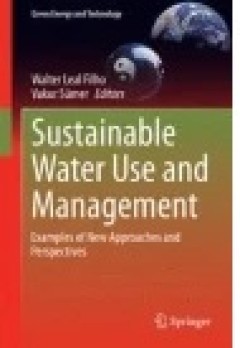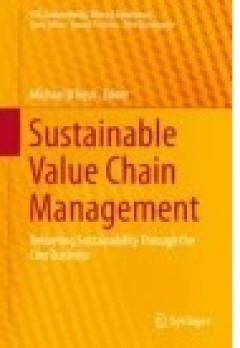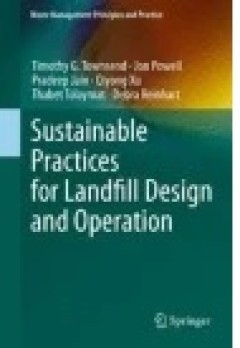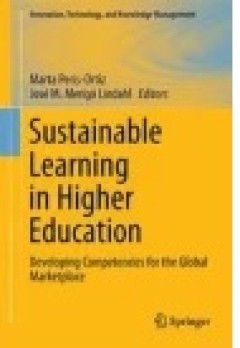Filter by

Risk Management for Enterprises and Individuals
This book is intended for the Risk Management and Insurance course where Risk Management is emphasized. When we think of large risks, we often think in terms of natural hazards such as hurricanes, earthquakes or tornados. Perhaps man-made disasters come to mind such as the terrorist attacks in the U.S. on September 11, 2001. Typically we have overlooked financial crises, such as the credit c…
- Edition
- -
- ISBN/ISSN
- -
- Collation
- -
- Series Title
- -
- Call Number
- 658.155 BAR r

Ethical Engineering for International Development and Environmental Sustainab…
Ensuring that their work has a positive influence on society is a responsibility and a privilege for engineers, but also a considerable challenge. This book addresses the ways in which engineers meet this challenge, working from the assumption that for a project to be truly ethical both the undertaking itself and its implementation must be ethically sound. The contributors discuss varied to…
- Edition
- -
- ISBN/ISSN
- 978-1-4471-6618-4
- Collation
- 28 b/w illustrations, 12 illustrations in colour
- Series Title
- -
- Call Number
- -

Essentials of Stochastic Processes
Building upon the previous editions, this textbook is a first course in stochastic processes taken by undergraduate and graduate students (MS and PhD students from math, statistics, economics, computer science, engineering, and finance departments) who have had a course in probability theory. It covers Markov chains in discrete and continuous time, Poisson processes, renewal processes, martinga…
- Edition
- -
- ISBN/ISSN
- 978-3-319-45614-0
- Collation
- 26 b/w illustrations
- Series Title
- -
- Call Number
- -

Sustainable Water Use and Management
Contributing to the growing debate on the need for sustainable water use and management, with concrete examples of new approaches, concepts, arguments, methods and findings which illustrate how this can be achieved, this book will be attractive for large groups of readers familiar with one or more of the themes it tackles, and to the general public. Within this context, the book makes use of ma…
- Edition
- -
- ISBN/ISSN
- 978-3-319-12394-3
- Collation
- IX, 408
- Series Title
- Green Energy and Technology
- Call Number
- -

Sustainable Value Chain Management
This book introduces the integrated management concept of "Sustainable Value Creation", which delivers sustainability ‘inside-out’ from the core business. It is based on the premise that sustainability can provide a platform for growth, if it is implemented in a company’s products, services and supply chains (combined also known as the 'Value Chain'). Managing the Value Chain from the out…
- Edition
- -
- ISBN/ISSN
- 978-3-319-12142-0
- Collation
- XII, 426
- Series Title
- CSR, Sustainability, Ethics & Governance
- Call Number
- -

Black Markets and Militants: Informal Networks in the Middle East and Africa
Understanding the political and socio-economic factors which give rise to youth recruitment into militant organizations is central to grasping some of the most important issues that affect the contemporary Middle East and Africa.
- Edition
- -
- ISBN/ISSN
- 9781108961011
- Collation
- -
- Series Title
- -
- Call Number
- 320.557 MED b

Sustainable Practices for Landfill Design and Operation
Solid waste management is a global concern, and landfilling remains the predominant management method in most areas of the world. This book provides a comprehensive view of state-of-the-art methods to manage landfills more sustainably, drawing upon more than two decades of research, design, and operational experiences at operating sites across the world. Sustainable landfills implement one or…
- Edition
- -
- ISBN/ISSN
- 978-1-4939-2662-6
- Collation
- XIX, 472
- Series Title
- Waste Management Principles and Practice
- Call Number
- -

Essentials of Excel, Excel VBA, SAS and Minitab for Statistical and Financial…
This introductory textbook for business statistics teaches statistical analysis and research methods via business case studies and financial data using Excel, Minitab, and SAS. Every chapter in this textbook engages the reader with data of individual stock, stock indices, options, and futures. One studies and uses statistics to learn how to study, analyze, and understand a data set of partic…
- Edition
- -
- ISBN/ISSN
- 978-3-319-38867-0
- Collation
- 125 b/w illustrations, 781 illustrations in colour
- Series Title
- -
- Call Number
- -

Sustainable Neighbourhoods in Australia
This book examines the planning and implementation of policies to create sustainable neighborhoods, using as a case study the City of Sydney. The authors ask whether many past planning and development practices were appropriate to the ways that communities then functioned, and what lessons we have learned. The aim is to illustrate the many variations within a city and from neighborhood to neigh…
- Edition
- -
- ISBN/ISSN
- 978-3-319-17572-0
- Collation
- XXV, 223
- Series Title
- -
- Call Number
- -

Sustainable Learning in Higher Education
The demands of today’s society represent a major challenge for universities and their teaching staffs. Professors need to adapt their teaching methods to meet these new challenges. For example, universities need to prepare new generations of students with the ability to select, update and use knowledge, rather than processing facts and formulas. Students need to be capable of learning in diff…
- Edition
- -
- ISBN/ISSN
- 978-3-319-10804-9
- Collation
- XVIII, 172
- Series Title
- Innovation, Technology, and Knowledge Management
- Call Number
- -
 Computer Science, Information & General Works
Computer Science, Information & General Works  Philosophy & Psychology
Philosophy & Psychology  Religion
Religion  Social Sciences
Social Sciences  Language
Language  Pure Science
Pure Science  Applied Sciences
Applied Sciences  Art & Recreation
Art & Recreation  Literature
Literature  History & Geography
History & Geography